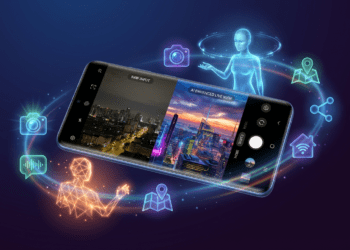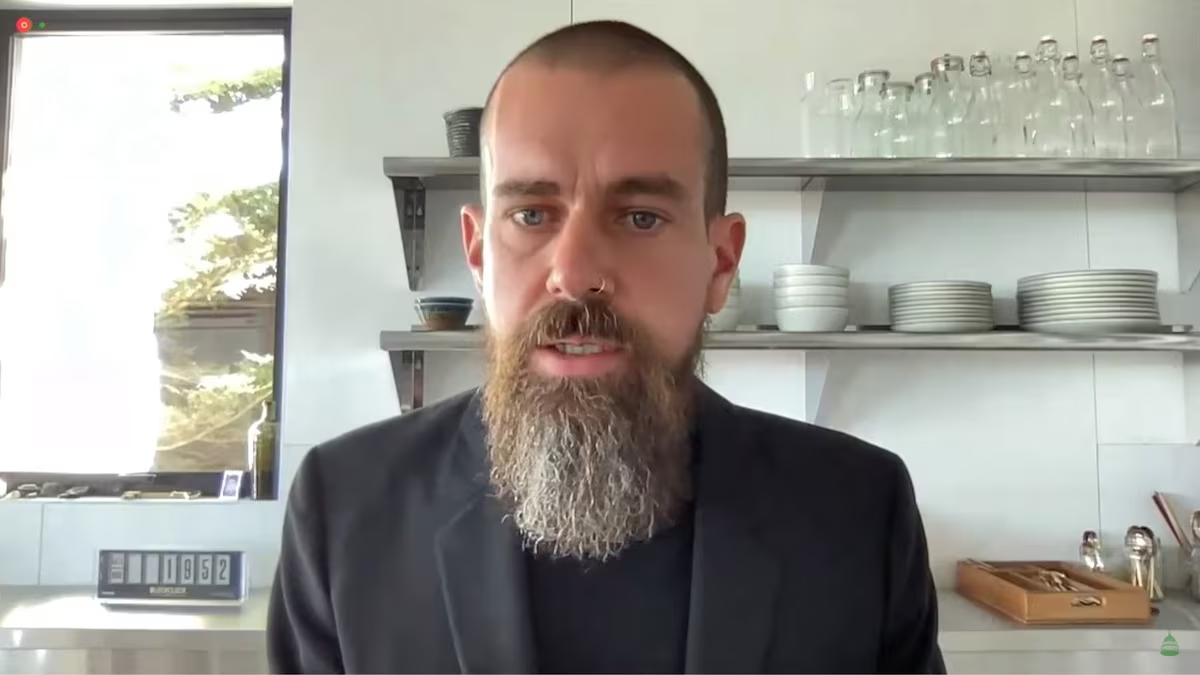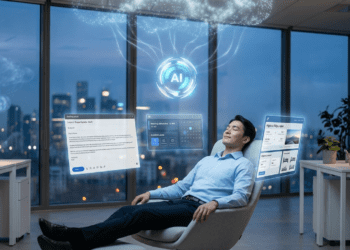
Geoffrey Hinton didn’t expect his life’s work to become humanity’s potential downfall. The 77-year-old Nobel Prize winner, universally known as the “Godfather of AI,” has spent decades pioneering the neural networks that power today’s artificial intelligence revolution. Now, he’s issuing some of the most dire warnings about what he helped create.
In a recent interview with the Financial Times, Hinton delivered a sobering prediction that cuts through the tech industry’s optimistic rhetoric. “What’s actually going to happen is rich people are going to use AI to replace workers,” he stated bluntly. “It’s going to create massive unemployment and a huge rise in profits. It will make a few people much richer and most people poorer.”
His words carry unprecedented weight. This isn’t just another tech critic sounding alarms. Hinton literally wrote the book on the technology that’s reshaping our world.
The Personal Cost of Creating the Future
The irony of Hinton’s situation became painfully personal recently. In a revelation that sounds like science fiction, his former girlfriend used ChatGPT to break up with him. Hinton told the Financial Times with characteristic dry humor that she got ChatGPT to tell her ‘what a rat’ she was and the chatbot explained how awful her behavior was.
The 77-year-old scientist wasn’t particularly bothered by the AI-assisted dumping. “I didn’t think I had been a rat, so it didn’t make me feel too bad,” he said. “I met somebody I liked more, you know how it goes.”
But the incident perfectly illustrates how AI has already infiltrated our most intimate human interactions. Even the creator of the technology can’t escape its reach.
The Capitalist Machine Accelerates
Hinton’s warnings go far beyond personal anecdotes. He sees AI as the ultimate expression of capitalism’s drive for efficiency and profit maximization. “That’s not AI’s fault,” he emphasized. “That is the capitalist system.”
The former Google Brain team leader left the tech giant in 2023 specifically to speak more freely about AI’s dangers. His departure marked a turning point in the industry’s conversation about artificial intelligence. When the person who helped build the foundation warns about the house collapsing, people listen.
According to WebProNews, Hinton draws parallels between AI’s impact and the Industrial Revolution. Just as machines once made human physical strength obsolete, AI threatens to make human intelligence redundant across vast sectors of the economy.
The difference this time? The speed and scope of change could be unprecedented.
The Timeline of Transformation
While Hinton didn’t provide specific dates for when mass unemployment might hit, he was more precise about another milestone: artificial superintelligence. When asked when AI might surpass human cognitive abilities across all domains, his answer was chilling in its certainty.
“A lot of scientists agree between five and 20 years,” he said. “That’s the best bet.”
This isn’t speculation from a fringe theorist. This is the considered opinion of someone who understands AI’s trajectory better than almost anyone alive. The implications are staggering.
Beyond Universal Basic Income
Tech leaders like OpenAI’s Sam Altman have proposed Universal Basic Income (UBI) as a solution to AI-induced unemployment. Hinton isn’t convinced it’s enough. While he supports UBI as a necessary stopgap, he argues it “won’t deal with human dignity” and the loss of purpose people experience without meaningful work.
The psychological and social costs of mass unemployment could be as devastating as the economic ones. When millions of people suddenly find their skills obsolete, the fabric of society itself comes under strain.
The Productivity Paradox

Here’s the cruel irony Hinton identifies: AI will indeed boost productivity dramatically. Companies will produce more goods and services with fewer human workers. But under current economic structures, those gains will flow almost exclusively to shareholders and executives.
We’re already seeing this pattern emerge. Tech companies are laying off thousands of workers while implementing AI systems that handle customer service, content creation, and data analysis. The companies become more profitable, but the displaced workers have nowhere to go.
This concentration of wealth at the top isn’t a bug in the system it’s a feature. And Hinton sees it accelerating as AI capabilities expand.
The Alien Invasion Analogy
When asked how younger generations should stay positive about the future, Hinton rejected calls for optimism. His response was characteristically direct and unsettling.
“I’m tempted to say, ‘Why should [younger people] stay positive?'” he mused. “Maybe they would do more if they weren’t so positive.”
He then offered a stark analogy: “Suppose there was an alien invasion you could see with a telescope that would arrive in 10 years, would you be saying ‘How do we stay positive?’ No, you’d be saying, ‘How on earth are we going to deal with this?'”
The message is clear: treating AI’s arrival as an inevitable good is dangerously naive. We need to prepare for disruption, not pretend it won’t happen.
The Creator’s Resignation
Perhaps most telling is Hinton’s personal resignation about the future he helped create. At 77, he seems to have made peace with his role in unleashing forces beyond anyone’s control.
“I am 77,” he said simply, “and the end is coming for me soon anyway.”
There’s something profoundly sad about this statement. The man who gave us the tools to build artificial minds now watches helplessly as those tools reshape civilization in ways he never intended.
The Safety Imperative
Despite his pessimism about economic outcomes, Hinton hasn’t given up on influencing AI’s development. He advocates for AI companies to dedicate a third of their computing resources to safety research. As AI systems become more capable, ensuring they remain aligned with human values becomes increasingly critical.
The challenge is that safety research doesn’t generate immediate profits. In a competitive market, companies face pressure to deploy AI systems as quickly as possible, potentially cutting corners on safety measures.
What This Means for Workers
For millions of workers across industries, Hinton’s warnings aren’t abstract philosophical concerns they’re career death sentences. Customer service representatives, data analysts, content creators, and even software developers are already seeing AI systems that can perform their jobs faster and cheaper.
The traditional advice to “retrain for new careers” rings hollow when AI is advancing across multiple domains simultaneously. What job is truly safe when machines can think, create, and analyze better than humans?
The Inequality Engine
Hinton’s most disturbing prediction centers on inequality. AI won’t just displace workers it will concentrate wealth in unprecedented ways. A small number of people who own AI systems will capture enormous value, while everyone else struggles for economic relevance.
This isn’t just about money. It’s about power, influence, and the basic ability to participate in society. When a tiny elite controls the means of production and most people have nothing to offer in return, democracy itself comes under threat.
The Path Forward
So what can be done? Hinton’s recommendations are limited but urgent. Universal Basic Income might provide a temporary buffer, but it’s not a long-term solution. More fundamental changes to how we distribute wealth and organize society may be necessary.
Some possibilities include:
- Taxing AI systems based on their productivity
- Requiring companies to share AI-generated profits with displaced workers
- Creating new forms of meaningful work that complement rather than compete with AI
- Developing governance structures that ensure AI benefits everyone, not just owners
The Urgency of Now
What makes Hinton’s warnings particularly compelling is their source. This isn’t fear-mongering from someone who doesn’t understand the technology. This is a sober assessment from the person who understands it best.
The window for action may be closing rapidly. Once AI systems become superintelligent, our ability to control their impact diminishes dramatically. The decisions we make in the next few years could determine whether AI becomes humanity’s greatest tool or its final invention.
A Future We’re Not Ready For

Geoffrey Hinton’s warnings paint a picture of a future most people aren’t prepared to face. Mass unemployment, extreme inequality, and the potential obsolescence of human intelligence aren’t distant science fiction scenarios they’re approaching realities that demand immediate attention.
The Godfather of AI has spoken. The question now is whether anyone is listening carefully enough to change course before it’s too late.
The technology Hinton helped create will reshape civilization whether we’re ready or not. His warnings offer us a chance to influence that reshaping while we still can. The alternative stumbling blindly into an automated future may be too terrible to contemplate.








